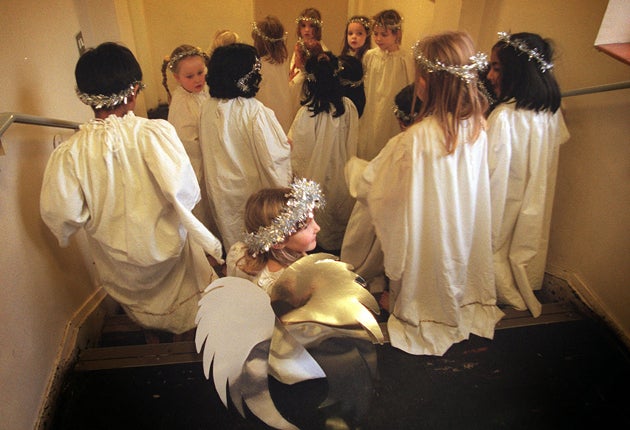School RE classes are failing to teach children about Christianity

Schools are failing to teach pupils about Christian beliefs in religious education lessons, inspectors said today.
Too often they focus on Jesus's parables to explore pupils' personal feelings and principles, but ignore any religious significance they may have.
The report, by the education watchdog Ofsted, said standards of teaching in the subject are falling. Christianity is a core part of the compulsory course and is taught alongside other major world faiths, including Judaism, Islam and Hinduism.
Compared with a survey carried out three years ago, the number of lessons classified as inadequate in secondary schools has doubled.
The figures show the quality of teaching to be inadequate in nearly a fifth of lessons over a three-year period. In the past year, though, this had risen to one in three. Inspectors visited a total of 183 primary and secondary schools in 70 authorities to compile the report. They singled out the way Christianity is taught for particular criticism. "Primary schools were often uncertain whether Christian material should be investigated in its own right as part of an understanding of the religion – or whether it should be used to consider moral and social themes outside of the context of the religion," it said.
In one example given, a primary school used the story of the healing of the blind man to get pupils to try to understand what it would feel like to be blind rather than to gain any understanding of miracles.
"In many cases, the study of Jesus focused on an unsystematic collection of information about his life, with limited reference to his theological significance within the [Christian] faith," the report said.
However, it added that schools are making progress in teaching about comparative religions, which helps to promote a more harmonious society. But they are neglecting the study of humanism, despite a directive that they should include it on the syllabus. Some local authorities failed to include non-religious beliefs altogether, despite clear guidelines.
The report also highlighted the increasing use of non-specialist teachers to take RE lessons, resulting in a tendency to focus on their own subjects in topic work – ignoring RE.
In one school which was failing to get 30 per cent of its pupils to obtain five A* to C grade passes at GCSE, the short course in RE was dropped altogether to make more time available to boost performance in the core subjects. Ofsted urged the Government to review the way RE is taught in schools.
The chief schools inspector, Christine Gilbert, said: "All young people should have the opportunity to learn about religion, as well as learning from religion. This requires good teaching based on strong subject knowledge and clarity about the purposes of religious education."
Dr Stephen Parker of the University of Worcester said: "The real problem is not having enough qualified RE teachers. You need to have a sophisticated understanding of the subject to be able to properly convey it to pupils."
Join our commenting forum
Join thought-provoking conversations, follow other Independent readers and see their replies
Comments
Bookmark popover
Removed from bookmarks